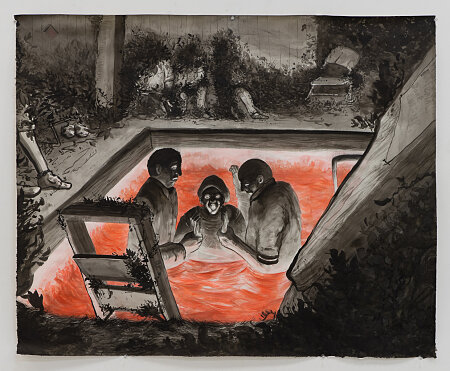
Before Paris
As his wife and the tourist strolled to the next canvas, the man gazed into the painting they had been studying, convinced that if he looked deeply enough, he might see the same amusing aspects of the painting his wife and her new companion had seen. He stared into the green, the crimson, the taupe—the suggestion of ripeness, the folds of linen, the texture of wicker.
“Que vois-tu,” he mimicked, but when he turned they had already moved on to the next exhibit.
Back in their room, the man asked his wife, “Who was your friend?”
“Un ami?” she replied as she slipped off her shoes.
“At the museum. Among the apples.”
“Cézanne?” she said as she placed her hat on the dressing table.
“Your chevreau,” the man said, confident in his expanding Parisian vocabulary. “He mentioned your chevreau,”
“Je n’ai pas de chevreau,” she chuckled. “C’est absurde.”
“You adjusted your hat when he commented on it. Is that absurd?”
“Ah, mon chapeau,” she replied, laughing. She lifted her hat from the dressing table and set it on her head. She stared at her reflection in the mirror—her long blonde hair, her rose lips, nearly smiling.
“Mon chapeau charmant,” she said.
She turned to her husband, now sitting at the foot of the bed.
“Et toi?’ she said.
He spread his arms and shrugged. He dropped back onto the bed, his arm now covering his eyes. As if to take pity on his confusion, she laid on the coverlet beside him and stroked his hair.
“Aww, Aww,” she repeated in rhythm with each stroke. “You’ll learn. Tout ira bien.”
But her husband knew the sound of patronizing—in French or English—and he turned his face away. His wife sat up, her legs pressing his hip, and continued to caress his cheek with the same motion.
“Hey!” she declared as she tickled his neck. “It’s okay. Le dîner? Poulet rôti? Truite? Filet mignon? Steak?”
The man looked up, and with the slightest of smiles said, “Pommes de terre.”
“Au gratin?” she asked and laughed.
